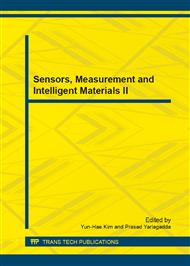[1]
M. Pazzani, D. Billsus, Content-based recommendation systems, Proc. The Adaptive Web, 2007, pp.325-341.
DOI: 10.1007/978-3-540-72079-9_10
Google Scholar
[2]
J. Illig, A. Hotho, R. Jäschke, G. Stumme, A comparison of content-based tag recommendations in folksonomy systems, Proc. First International Conference on Knowledge Processing and Data Analysis, 2011, pp.136-149.
DOI: 10.1007/978-3-642-22140-8_9
Google Scholar
[3]
B. Sarwar, G. Karypis, J. Konstan, J. Riedl, Item-based collaborative filtering recommendation algorithms, Proc. ACM International Conference on World Wide Web, 2001, pp.285-295.
DOI: 10.1145/371920.372071
Google Scholar
[4]
P. Adamopoulos, A. Tuzhilin, Recommendation opportunities: improving item prediction using weighted percentile methods in collaborative filtering systems, Proc. ACM International Conference on Recommender Systems, 2013, pp.173-184.
DOI: 10.1145/2507157.2507229
Google Scholar
[5]
A. Albadvi, M. Shahbazi, A hybrid recommendation technique based on product category attributes, Expert Systems with Applications, 36(9), 2009, pp.11480-11488.
DOI: 10.1016/j.eswa.2009.03.046
Google Scholar
[6]
J. Lucas, N. Luz, M. Moreno, R. Anacleto, A hybrid recommendation approach for a tourism system, Expert Systems with Applications, 40(9), 2012, p.3532–3550.
DOI: 10.1016/j.eswa.2012.12.061
Google Scholar
[7]
L. Ding, B. Qiao, G. Wang, C. Chen, An efficient quad-tree based index structure for cloud data management, Proc. International Conference on Web-Age Information Management, 2011, pp.238-250.
DOI: 10.1007/978-3-642-23535-1_22
Google Scholar
[8]
W. Che, M. Wang, C. Manning, T. Liu, Named entity recognition with bilingual constraints, Proc. International Conference on North American Chapter of the Association for Computational Linguistics: Human Language Technologies, 2013, pp.52-62.
Google Scholar


